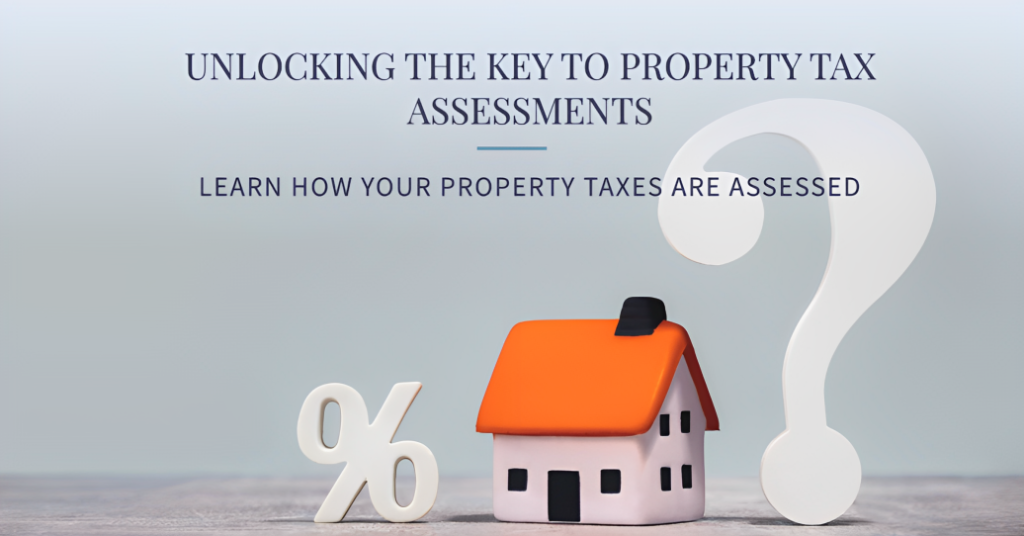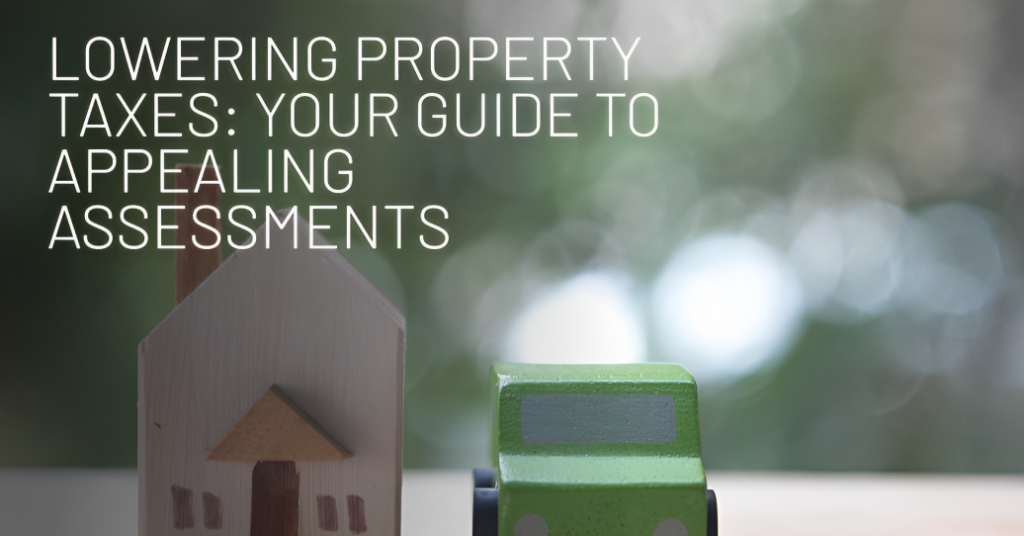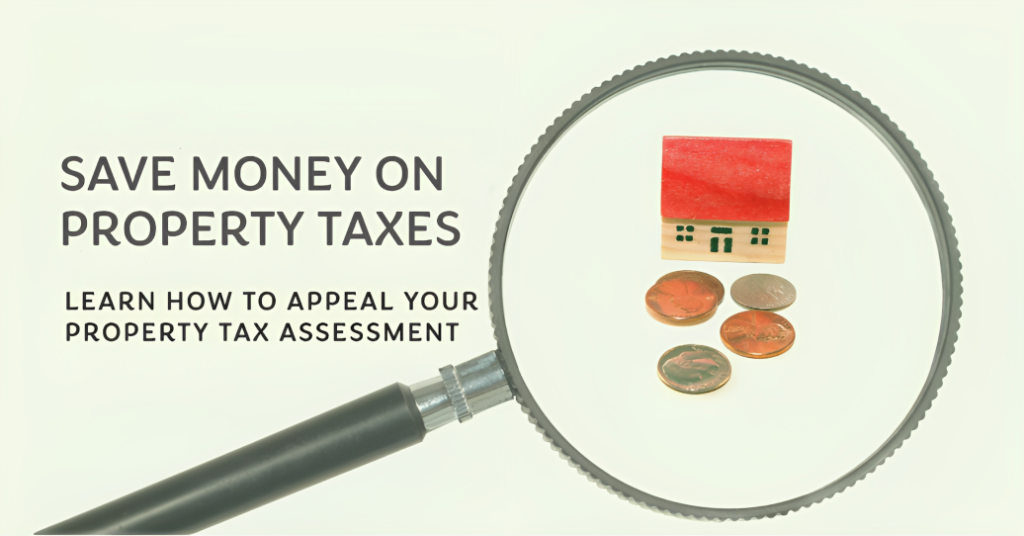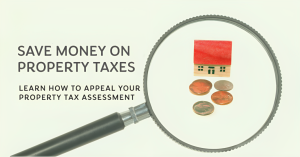Accurate property tax assessment are essential in calculating the amount owing because property taxes are a significant financial burden for homeowners. However, there are frequent differences in these tax assessments.
Fortunately, if property owners feel these assessments are incorrect or excessively exorbitant, they may contest them. This article will examine the procedure for challenging tax assessments and their significance and potential for significant savings.
Understanding Property Tax Assessment

Property tax valuations are the foundation for calculating homeowners property taxes. Local governments use these assessment to determine the value of a property. Which in turn influences the amount of taxes owed. Assessments are typically performed periodically based on various factors. Including the property location, size, condition and recent sales of comparable properties.
Property tax valuations main goal is to ensure that property owners pay their fair part of the costs of maintaining local public amenities like infrastructure emergency services and schools.
These evaluations are meant to be accurate but they are not perfect. Property owners may end up paying more than they should because of disparities caused by things like real estate market fluctuations, home renovations or mistakes in assessment calculations.
Importance of Accurate Property Tax Assessment

Property tax assessment A just and efficient taxation system is built on accurate property tax valuations. They are crucial in establishing how much a person or corporation must pay in property taxes to pay for basic public services. Let examine the factors that make correct property tax valuations crucial.
1. Fair Distribution of Tax Burden
Equitable distribution of the tax burden among taxpayers is one of the guiding principles of taxes. To create this equity accurate property tax valuations are necessary. Regardless of their financial situation property owners contribute based on the genuine value of their properties when properties are fairly appraised.
This guarantees that those with less valuable properties are not unfairly taxed and stops people with more valuable properties from dodging their fair amount of taxes.
2. Transparent and Trustworthy System
A transparent taxation system maintains public trust and confidence in government operations. When property tax assessment are accurate and consistent taxpayers are more likely to believe that they are being treated fairly. This in turn fosters a positive relationship between taxpayers and the government promoting compliance and reducing the likelihood of tax evasion.
3. Funding Public Services
Property tax gives a significant source of revenue for local governments. These funds support critical public services such as education infrastructure development healthcare public safety and maintenance of essential services. Accurate assessments ensure that these services are adequately funded based on the actual value of properties within the community.
4. Preventing Underfunding or Overfunding
Inaccurate property tax assessment can lead to underfunding or overfunding of public services. Underfunding occurs when properties are undervalued resulting in lower-than-required tax revenues.
This can lead to a shortfall in funding for crucial services and hinder the quality of life in a community. On the other hand, overfunding can occur when properties are overvalued leading to higher tax revenues than necessary. This excess revenue might not be used efficiently or appropriately leading to wastage or unnecessary taxation.
5. Encouraging Proper Property Valuation
Accurate property tax assessments encourage property owners to maintain and improve their properties. When assessments reflect a property’s true value owners are more likely to invest in maintaining and enhancing their assets. This in turn contributes to the overall improvement of the community and helps maintain property values.
6. Real Estate Market Stability
Property tax valuations influence the real estate market. If inflated assessments can lead to unrealistic property values and contribute to market instability potentially causing housing bubbles. Conversely, undervalued assessments can lead to a lack of investor confidence in the market. Accurate assessments provide a more stable and reliable foundation for the real estate market.
7. Legal and Regulatory Compliance
Accurate property tax assessments ensure property owners comply with local tax laws and regulations. Inaccurate assessments can lead to disputes legal challenges and administrative complexities that consume resources and time for property owners and government agencies.
8. Predictable Revenue Streams
Local governments rely on predictable revenue streams to plan and execute various projects and services. Accurate property tax valuations provide a stable and reliable source of revenue, enabling governments to make informed financial decisions and meet community needs effectively.
Reasons to Appeal Property Tax Assessment

- Overvaluation: If your property has been overvalued due to errors in assessment calculations or incorrect information about the property, you may be paying more in property taxes than necessary.
- Comparable Sales: If recent sales of comparable properties in your area indicate a lower value than your assessed value, you might have a valid case for an appeal.
- Property Damage: If your property has suffered damage that significantly reduces its value, such as structural issues or environmental factors, an appeal can help adjust the assessment to reflect the current condition.
- Market Fluctuations: Real estate markets can be volatile, and assessments might not always keep up with rapid changes. An appeal could lead to tax savings if your property’s value has decreased due to market conditions.
- Unequal Assessments: In some cases, properties with similar characteristics are assessed differently. If you can demonstrate that your property is assessed higher than similar ones, you could have a strong case for an appeal.
The Process of Appealing Property Tax Assessment
- Gather Evidence: Collect relevant documents such as recent property appraisals comparable sales data and property condition assessments to support your appeal.
- Review Assessment Details: Carefully review the assessment notice to ensure no factual errors about your property’s characteristics.
- Contact the Assessor’s Office: Reach out to your local assessor’s office to understand the appeal process and deadlines. They can guide the required forms and documentation.
- Submit an Appeal: Complete the necessary forms and provide supporting evidence to the assessor office. This could involve a formal hearing where you present your case.
- Hearing Process: During the hearing, present your evidence and explain why you believe the assessment is inaccurate. Be ready to respond to inquiries and offer more details
- Assessment Review: The assessor office will review your appeal and evidence. They will then decide to uphold the assessment, adjust it, or offer a compromise.
- Further Appeals: If you disagree with the outcome, you might have the option to pursue further appeals through local review boards courts or specialised appeal boards.
Potential Savings and Long-Term Benefits

1. Equitable Taxation
Property tax assessments serve as the basis for determining your tax liability. An accurate assessment ensures that you are paying your fair share of taxes, no more and no less. When incorrect assessments can lead to disparities among property owners, some shouldering a disproportionately higher tax burden than others.
By challenging an incorrect assessment you can help your community have a more just and equitable allocation of tax obligations. This benefits you as the property owner and promotes a sense of justice among your neighbours. Everyone can have greater faith in the integrity of the tax system the more precise the assessments are.
2. Financial Planning
Property taxes are a recurring expense that can significantly impact your financial planning. Successfully appealing your property tax assessment results in lower tax bills, which can free up funds that you can redirect toward other important financial goals. This could include paying off debts, saving for education building an emergency fund, or investing for the future.
Lower property taxes can also make homeownership more affordable especially for those on a tight budget. By reducing this ongoing financial obligation you gain more control over your finances and have greater flexibility to allocate resources according to your priorities.
3. Property Value Protection
Accurate property assessments are crucial in maintaining a realistic understanding of property values within your area. When properties are assessed correctly, it helps prevent artificially inflated values that can lead to unstable market conditions. This stability is beneficial for both homeowners and the broader real estate market.
A more accurate representation of local property values is made possible by contesting an assessment not indicative of your property’s genuine value.
Unrealistic expectations among purchasers might result from overly optimistic appraisals, potentially creating market bubbles. By challenging erroneous assessments, you may contribute to maintaining the integrity and stability of the real estate market, which is crucial for long-term property value growth.
Conclusion
Revenue from property taxes is essential to local governments. But assessments must be fair and accurate. Property owners may be able to save money by challenging inaccurate or unfair assessments through the appeals process which also promotes a more open and reliable tax system.
Homeowners can actively preserve the integrity of the taxation system and guarantee that everyone pays their fair share by taking the initiative to challenge property tax assessments when necessary.
Unlock Savings Today with Appealing Property Tax Assessments! Get Professional Advice – Call 020 3996 0999 or Email info@wesavepropertytax.com









